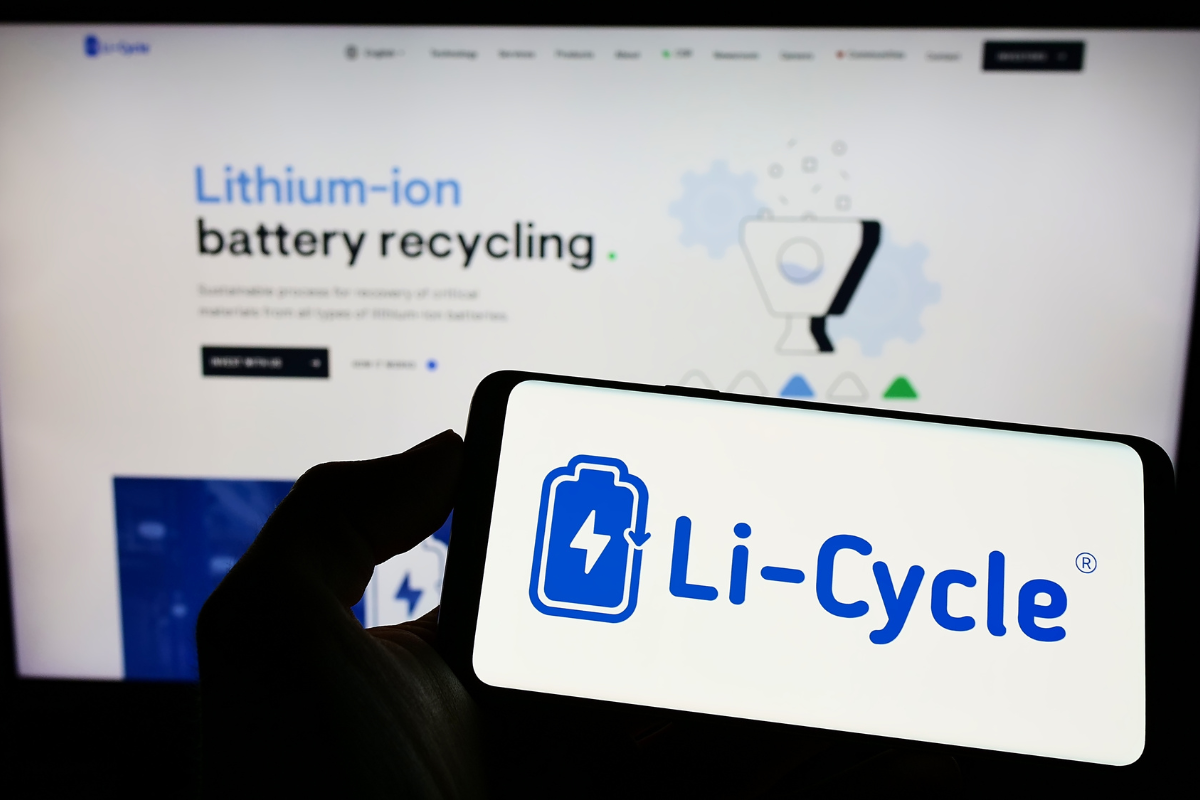
Caught in the middle of rising costs, high interest rates and a flagging EV market, Li-Cycle has decided to pump the brakes on its expansion plans. | T. Schneider/Shutterstock
Toronto-based lithium-ion battery recycling startup Li-Cycle announced it is pausing construction of one of its hub facilities, slowing down its expansive growth. Its share prices have fallen in connection.
A press release noted that Li-Cycle is pausing work on its Rochester, N.Y. project, “pending completion of a comprehensive review of the go-forward strategy for the project.” The facility is partially funded by a $375 million loan commitment from the U.S. Department of Energy, and Li-Cycle “continues to work closely” with the federal government through this process, the press release stated.
Engineering and procurement for the project was already mostly complete, but Li-Cycle stated that “escalating construction costs” have pushed the cost for the current scope of the project to beyond what was previously disclosed. The $175 million facility was slated to come on-line in 2022, then in 2023.
“In light of these developments, the Board of Directors has decided to pause construction work on the Rochester Hub, pending a review of the project, including an evaluation of the go-forward phasing of its scope and budget, including construction strategy,” the press release noted.
Li-Cycle added that it plans to release its financial results for the third quarter on Nov. 13, and at that time will also share additional updates on the company’s near-term plans and the project review process.
After the announcement, Li-Cycle’s stock prices sank 48% Monday and law firm Kirby McInerney announced it is investigating the company over potential violations of federal securities laws and/or other unlawful business practices.
Morgan Stanley warned that the electric vehicle industry could be entering “a period of dislocation for announced and in-progress highly capital intensive projects that rely on large quantities of attractively priced external capital.”
That’s due to higher interest rates, rising cost of capital and a slowing EV market, the analysis added.
Li-Cycle’s shares also took a hit in March 2022, when short seller Blue Orca Capital questioned Li-Cycle’s practices. No Securities and Exchange Commission (SEC) investigation into Li-Cycle was announced in connection with the allegations.

